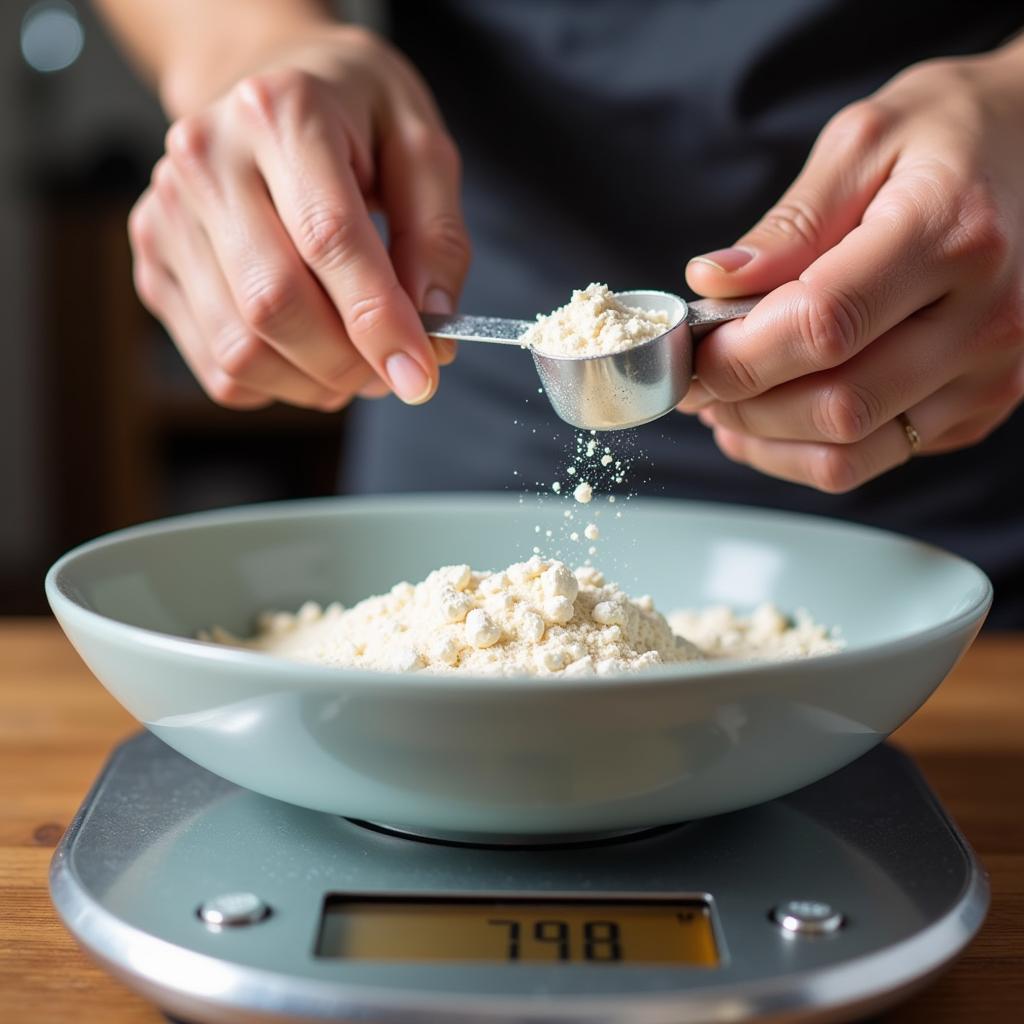Whey Protein For Horses has become a popular supplement, but is it right for your equine companion? This comprehensive guide will delve into the benefits, risks, and practical applications of using whey protein for horses, helping you make informed decisions about their nutritional needs.
Understanding Whey Protein and its Benefits for Horses
Whey protein is a byproduct of cheese production, derived from the liquid remaining after milk has been curdled and strained. This liquid, rich in essential amino acids, is then processed and dried into a powder form. For horses, whey protein can be a valuable source of these crucial building blocks for muscle growth and repair, especially for performance horses, growing youngsters, or those recovering from illness or injury. It’s important to note that not all horses require whey protein supplementation. A balanced diet with quality forage should be the foundation of any horse’s nutrition plan.
 A horse enjoys a balanced diet of hay, the foundation of equine nutrition.
A horse enjoys a balanced diet of hay, the foundation of equine nutrition.
When to Consider Whey Protein for Your Horse
Certain situations may warrant the inclusion of whey protein in a horse’s diet. These include:
- Supporting Muscle Growth: For young, growing horses, whey protein can help support the development of strong, healthy muscles.
- Aiding in Muscle Recovery: Horses in intense training or competition often benefit from the readily available amino acids in whey protein to repair muscle tissue after strenuous exercise.
- Improving Topline: Whey protein can contribute to improved topline by supporting muscle development in the back and neck.
- Boosting Overall Condition: Horses recovering from illness or injury may find whey protein helpful in regaining lost muscle mass and overall condition.
“For horses undergoing rigorous training, whey protein can be a valuable addition to their diet, aiding in faster muscle recovery and reducing the risk of injury,” says Dr. Emily Carter, Equine Nutritionist.
Potential Risks and Considerations
While whey protein can offer several benefits, it’s essential to be aware of potential risks and considerations:
- Digestive Upset: Introducing whey protein too quickly or in large quantities can cause digestive upset in some horses. Start with small amounts and gradually increase the dosage as tolerated.
- Allergies: While rare, some horses may be allergic to whey protein. Watch for signs of an allergic reaction, such as hives, swelling, or difficulty breathing.
- milk powder for horses
- Cost: Whey protein supplements can be relatively expensive.
 Accurate measurement of whey protein is crucial for proper supplementation.
Accurate measurement of whey protein is crucial for proper supplementation.
How to Incorporate Whey Protein into Your Horse’s Diet
If you decide to supplement your horse with whey protein, follow these guidelines:
- Consult your veterinarian: Discuss your horse’s specific needs and whether whey protein is appropriate for their situation.
- Choose a high-quality product: Look for whey protein supplements specifically formulated for horses, free from added sugars and fillers.
- Start slowly: Begin with a small dose and gradually increase the amount over several days to allow your horse’s digestive system to adjust.
- Mix thoroughly: Add the whey protein powder to your horse’s feed and mix well to ensure even distribution.
- Monitor your horse’s response: Observe your horse for any signs of digestive upset or allergic reaction.
Whey Protein vs. Other Protein Supplements
Whey protein is just one type of protein supplement for horses. Other options include soy protein, alfalfa meal, and rice bran. Each has its own benefits and drawbacks, and the best choice for your horse will depend on their individual needs and dietary requirements.
“Choosing the right protein supplement requires a thorough understanding of your horse’s individual needs and overall health condition. A consultation with an equine nutritionist can help determine the most appropriate option,” advises Dr. Samantha Ramirez, Equine Veterinarian.
Conclusion: Is Whey Protein Right for Your Horse?
Whey protein for horses can be a beneficial supplement in specific situations, such as supporting muscle growth and recovery. However, it’s crucial to consider potential risks, consult with your veterinarian, and choose a high-quality product. A balanced diet with quality forage remains the foundation of equine nutrition, and whey protein should be used judiciously as a supplemental tool.
FAQ
- Can I give whey protein to my senior horse?
- What are the signs of a whey protein allergy in horses?
- How much whey protein should I give my horse?
- Can I mix whey protein with other supplements?
- Are there any alternatives to whey protein for horses?
- Is whey protein suitable for all breeds of horses?
- How long does it take to see results from whey protein supplementation?
If you need assistance please call us 24/7: 0772127271, email us at [email protected] or visit us: QGM2+WX2, Vị Trung, Vị Thuỷ, Hậu Giang, Việt Nam.